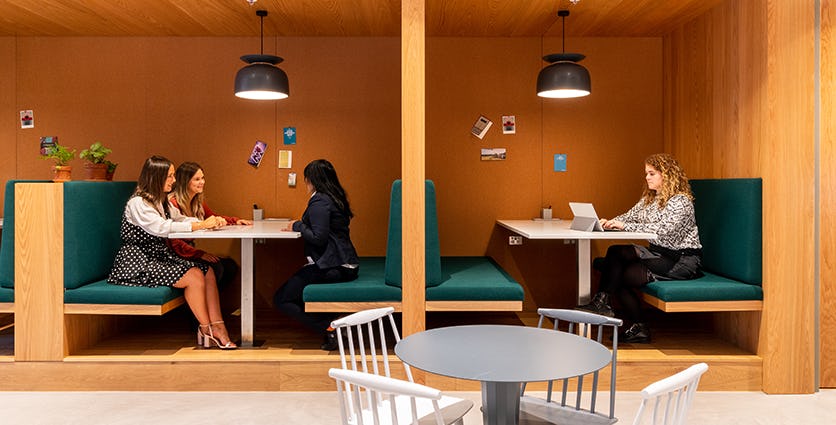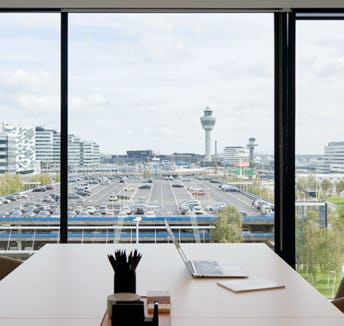
Forget daylight saving time: all over the world, the hours we keep are changing like never before, and the way we allot those hours to specific parts of the day is changing too. The Fourth Industrial Revolution – or the switch to an always-on, cloud-based, tech-driven society, to put it in layman’s terms – has upended how we operate. From the piping-hot pizza delivered direct to your door to the boxset downloaded straight to your screen, on-demand culture has impacted all aspects of our lives. And work is not immune, either: now that increasingly fast connectivity and more sophisticated software allows you to access the things you need to perform your job, what’s happening to the traditional 9 to 5?
Why Dolly Parton was right about office hours
Dolly Parton references aside, businesses and governments are responding to the growing trend in flexible working hours and revaluating how a shorter working week many offices works best for them. But is it really feasible to cut down on the number of hours and maintain productivity?
As office workers all over the world will be happy to learn, the short answer is: yes. But that yes does come with caveats. Think about the typical journalist leaving everything to the last minute, only to thrive when that deadline looms and the editor’s on the phone asking for copy (not us, promise). It’s not the most sensible way to approach work but, in terms of focussing the mind, there’s certainly a lesson to be learned here. Faced with the Monday-morning prospect of a full week ahead of you, how long have you taken to accomplish a task that could have been done in half the time? In Sweden, a move to slash two hours off the typical eight-hour day has resulted in happier employees with no drop in productivity (therefore making people more productive, not less).
Still not convinced? Research by Illinois Institute of Technology psychology professors Raymond Van Zelst and Willard Kerr found that those working a 35-hour week were half as productive as those who did 20. As the saying goes: if you want to get something done, ask a busy person.
A survey by FlexJobs revealed that just 7% of respondents felt like they did their best work during office hours. Much like a duck’s legs doing all the work underwater as it glides along, the brain’s subconscious is always busy even when it’s not been handed a specific task. Flexible hours allow you to take a problem away and wrestle with it while doing something else – and who hasn’t had the answer to a thorny issues drop into their head while chopping vegetables or taking a shower?
The evidence is real: fewer hours improve productivity
Since the evidence suggests that fewer hours and flexi time actually improve productivity, why are some employers reluctant to adopt the trend? It all comes down to trust. If you’re paying someone to do their role for a set number of hours a day, it can be difficult to measure your return on investment. But giving an employee more autonomy has actually been proven to increase productivity, according to a report by PsychCentral. In Human Autonomy in Cross-Cultural Context: Perspectives on the Psychology of Agency, Freedom, and Well-Being, professors Marylène Gagné and Devasheesh Bhave from Concordia’s John Molson School of Business show how freedom leads to flourishing. Gagné adds: “autonomy is especially likely to lead to better productivity when the work is complex or requires more creativity.”
A flexible workspace can do wonders
It’s also worth considering quality of work. When you’re stressed, it’s harder to think straight – which means that what you produce is bound to suffer. And an endless commute complemented by a full week at the office, with all the distractions that can bring, certainly don’t help to create a sense of calm when you’ve got a to-do list to get through. But shorter working hours and a flexible approach to the physical location of where a job is performed can work wonders, elevating the experience for the employee from office-worker to idea-generator. Spaces coworking provides everything from desk space to meeting rooms, not to mention a stimulating environment and planet of opportunities for networking with likeminded individuals.
Perhaps Dolly Parton was ahead of her time in 1980 when she sang, “Workin’ 9 to 5, what a way to make livin’” before adding, “There’s a better life, and you dream about it, don’t you?” Fortunately for today’s working population, fewer, more flexible hours are no longer a dream and can very easily become reality. But in all seriousness, the world of work is currently experiencing nothing short a step-change that’s as beneficial for the employer as it is for the employee. Greater understanding of psychology in the workplace and the tech revolution mean general opinion has fallen into line with Ms Parton’s prescient remarks, and offices like Spaces have turned the working day from one of drudgery into one of discovery.
Whatever your office hours look like, Spaces lets you determine your own. See what our locations have to offer.
Share this article
 Read now Spaces and Microsoft team up and create AI innovation hub
Read now Spaces and Microsoft team up and create AI innovation hub
 Read now Spotlight on: Spaces Team Concept & Interior
Read now Spotlight on: Spaces Team Concept & Interior